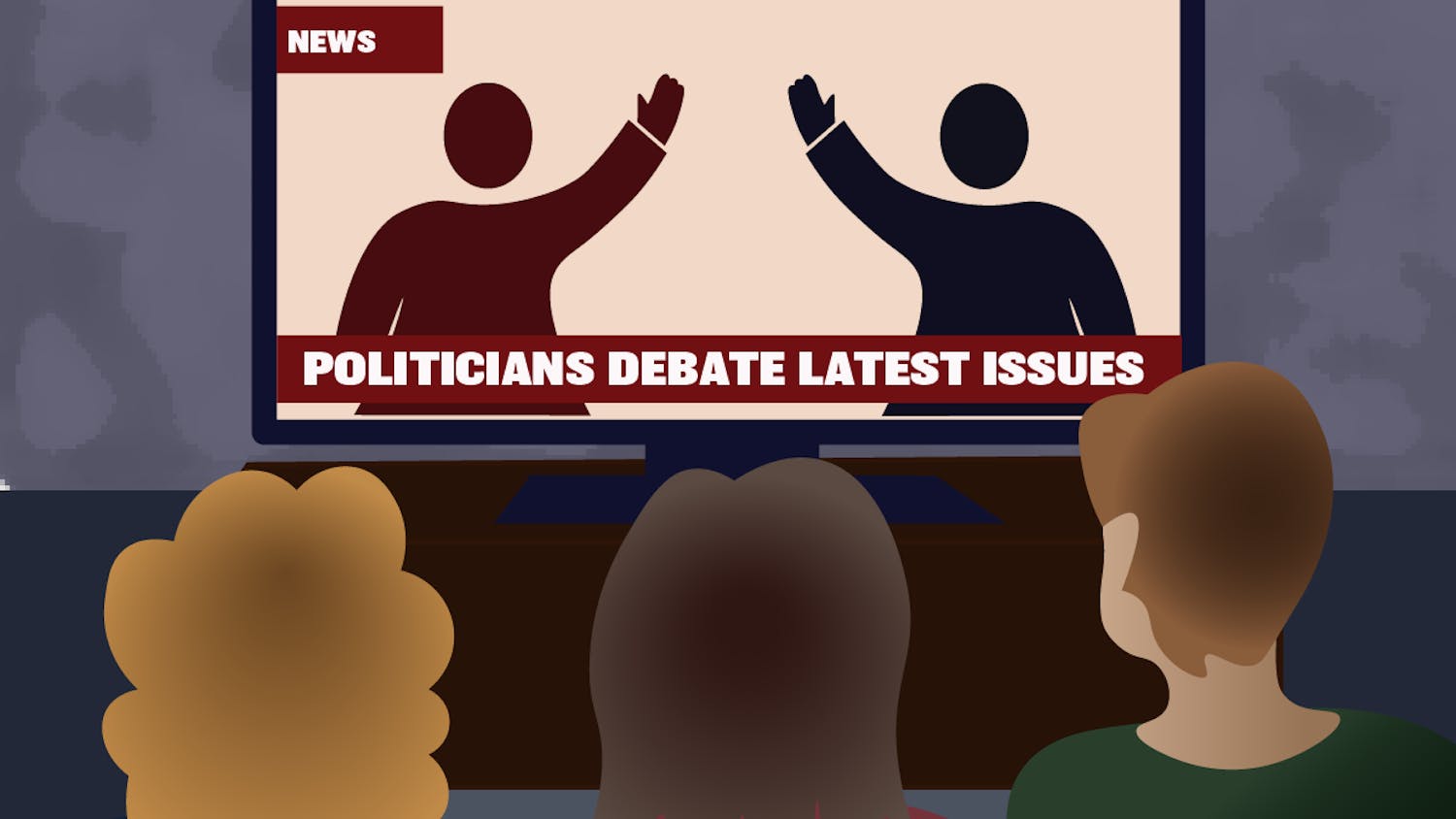Picture this: The date is Nov. 6, 2028. You step into a voting booth in the Reitz Union or some other polling place and look at the long ballot of names in front of you. You may recognize some names at the top, such as for your senator or U.S. House representative, but the rest for positions like county judge and sheriff are completely new to you. You already know who you’ll vote for at the top of the ballot, and the lower positions you fill in based on surface-level factors like name or political party affiliation and assume they’re not important. However, I’m here to tell you that voting for state- and local-level positions is as important, if not more important, as voting for federal position.
First, a quick run-down of the various levels. For the purposes of this column, there are three levels of position: federal, state, and local. Federal officials are elected to serve in Washington, D.C., such as your senator, your representative, and the president. They vote and make decisions on issues affecting the whole nation. State officials, such as the governor and state legislators, are elected to serve in the state capital (for Florida, that’s Tallahassee). They vote and make decisions on issues affecting the whole state. Finally, local officials are people like sheriffs, mayors, city commissioners, and judges who serve in your county, city or other local district. They vote on and make decisions for their small area.
At first, you may think federal positions are most important, since their decisions impact the most people. However, different areas have different specific issues; red tide may be an issue here in Florida, but a person in Nebraska may not even know what red tide is. This is where state and local officials come in. As a 2016 article from The Hill explained, “Our local elected officials are the ones who dictate the local laws, policies and budgets that affect us the most…” The Hill went on to explain that local governments have more of an impact on our everyday lives, such as maintaining the roads we drive on and collecting property taxes to fund education. In addition, according to a 2017 Medium post from RockTheVote, many policies enacted at the federal level start out as local or state policies, so supporting certain policies and politicians at the local and state level now can get the ball rolling on nationwide change.
If these arguments don’t convince you, consider the practical reality: Your vote has more power at the local and state level than at the federal level. According to RockTheVote, only one in five voters participate in midterm and off-year (non-presidential) elections, so your individual vote for governor or school board member (especially in 2018 where the president isn’t on the ballot) makes a bigger difference. This means that when you vote in local and state elections, you have more power to hold your local and state representatives accountable and to get them to listen to you, or to vote them out if they fail to do so. Contrary to popular belief, your vote does matter. And it matters even more at the state and local level.
So hopefully by now I’ve showed you how important local and state elections are. But what is up for election at the local and state level this year? And who are your local representatives? First, on the question of local representatives. In the Florida House of Representatives, the city of Gainesville is split between District 20 (represented by Democrat Clovis Watson, Jr.) and District 21 (represented by Republican Charles “Chuck” Clemons, Sr.); UF is in District 20. In the State Senate, Gainesville, UF and the rest of Alachua County are part of District 8, represented by Republican Keith Perry. In Gainesville, the Mayor is Lauren Poe and the Alachua County Sheriff is Sadie Darnell.
As for who is up for election this year, there is of course the governor’s race between Republican Ron DeSantis and Democrat Andrew Gillum. But there are other races as well, including State Senator Perry running for re-election against Democrat Kayser Enneking and independent Charles Goston, Republican Ashley Moody and Democrat Sean Shaw running to be Florida Attorney General, and Alachua County Commission Seats 2 and 4 are both up for election. For a complete list of elections on the ballot, see the Alachua County Supervisor of Elections’ website at www.votealachua.com/Elections/Upcoming-Elections/2018-General-Election. You can also enter your address at www.vote411.org/ballot to find out information about each race and candidate, so you can be informed about the issues. Organizations like the League of Women Voters will also release full nonpartisan voter guides as the November election draws closer. No matter how you vote, remember to maximize your impact: Vote locally!
Jason Zappulla is a UF history junior. His column appears on Mondays.





